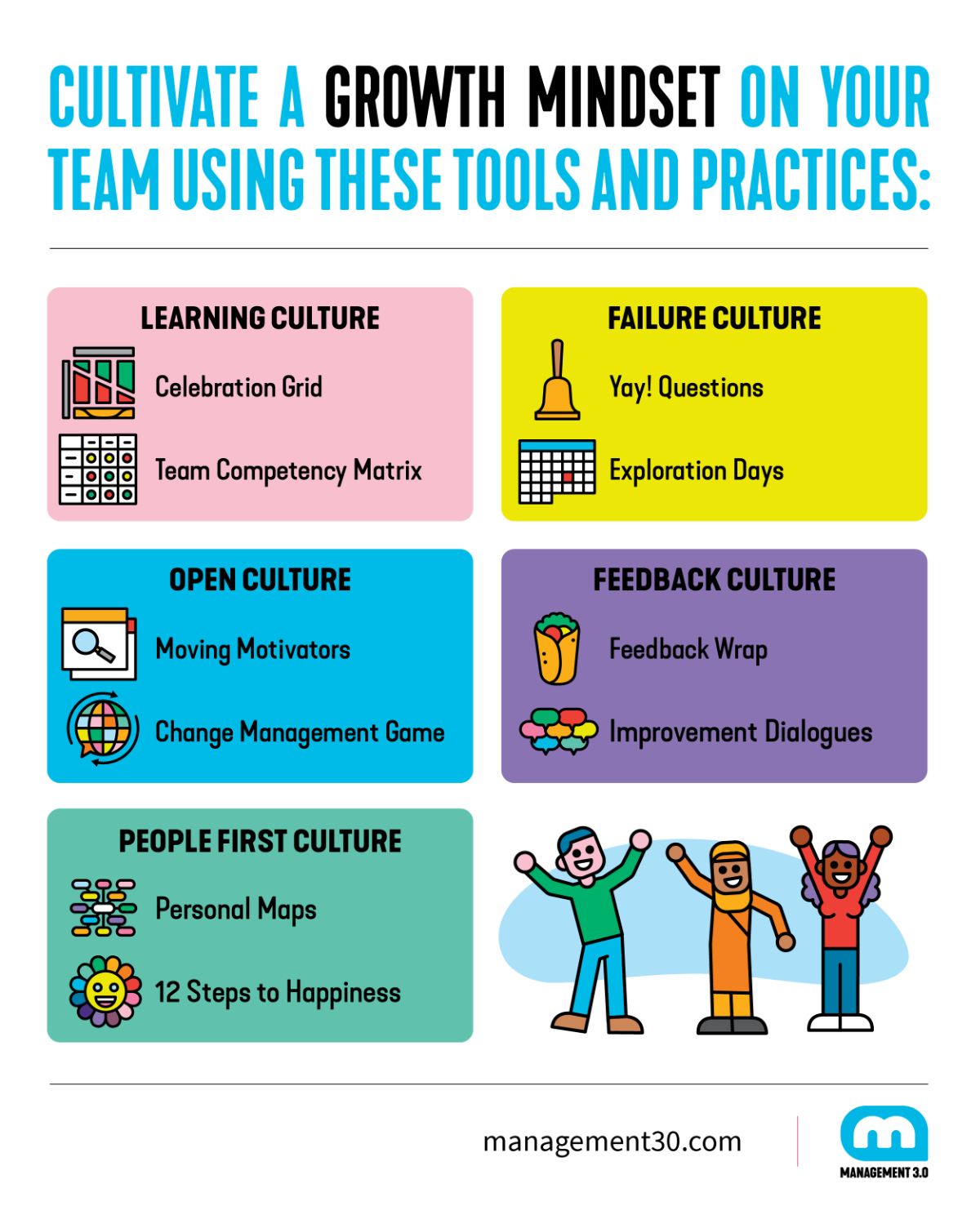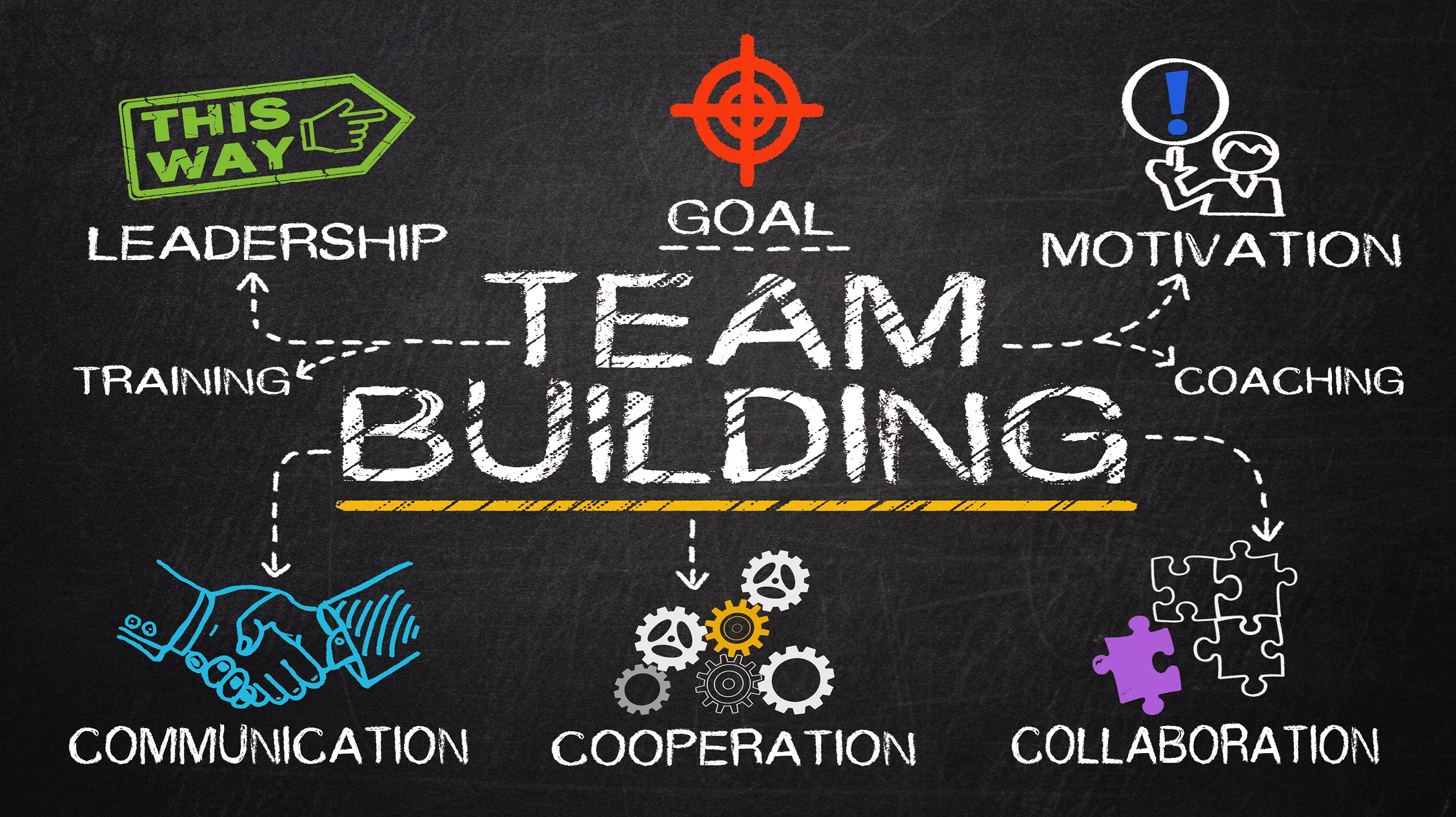Unlocking the Power of Collaboration
A winning team culture is the backbone of any successful organization, and it all starts with an entrepreneurial mindset. When team members share a common vision and are empowered to take ownership of their work, they become more productive, innovative, and driven to succeed. Entrepreneurial mindset and teamwork are closely intertwined, as they both rely on a willingness to take calculated risks, experiment with new ideas, and learn from failures. By fostering a culture of collaboration and open communication, teams can tap into the collective genius of their members and achieve remarkable results.
Research has shown that teams with a strong entrepreneurial mindset are more likely to innovate, adapt to change, and overcome obstacles. This is because they are not afraid to challenge the status quo, think outside the box, and push the boundaries of what is possible. By embracing this mindset, teams can unlock their full potential and achieve remarkable success.
So, what sets teams with an entrepreneurial mindset apart from others? For starters, they are driven by a shared passion for innovation and a desire to make a meaningful impact. They are also characterized by a willingness to take calculated risks, experiment with new ideas, and learn from failures. This mindset is contagious and can spread throughout an organization, inspiring others to adopt a similar approach.
Furthermore, teams with an entrepreneurial mindset are often more resilient and adaptable in the face of change. They are able to pivot quickly and adjust their strategy as needed, which enables them to stay ahead of the curve and remain competitive. This is particularly important in today’s fast-paced business environment, where change is the only constant.
By cultivating a winning team culture that is driven by an entrepreneurial mindset, organizations can unlock the full potential of their teams and achieve remarkable success. This requires a commitment to innovation, experimentation, and continuous learning, as well as a willingness to take calculated risks and challenge the status quo. By embracing this mindset, teams can achieve great things and make a lasting impact.
Fostering a Growth Mindset in Your Team
A growth mindset is a crucial component of a winning team culture, and it plays a significant role in promoting teamwork and collaboration. When team members have a growth mindset, they are more likely to be open to new ideas, willing to take risks, and resilient in the face of challenges. This mindset is essential for driving innovation, creativity, and success in today’s fast-paced business environment.
So, how can you encourage a growth mindset in your team members? One effective way is to create a culture that values learning and experimentation. This can be achieved by providing opportunities for training and development, encouraging team members to take on new challenges, and celebrating successes and failures alike. By doing so, you can help your team members develop a growth mindset and unlock their full potential.
Another key strategy for fostering a growth mindset is to encourage team members to seek feedback and learn from failures. This can be done by creating a safe and supportive environment where team members feel comfortable sharing their ideas and concerns. By embracing a culture of continuous learning and improvement, you can help your team members develop a growth mindset and drive success.
Additionally, leaders play a critical role in promoting a growth mindset in their teams. By modeling behaviors such as embracing challenges, learning from failures, and seeking feedback, leaders can set the tone for a growth mindset culture. This can be achieved by leading by example, providing guidance and support, and empowering team members to take ownership of their work.
Entrepreneurial mindset and teamwork are closely intertwined, and a growth mindset is a key component of this mindset. By fostering a growth mindset in your team members, you can drive innovation, creativity, and success, and unlock the full potential of your team. By creating a culture that values learning and experimentation, encouraging team members to seek feedback and learn from failures, and leading by example, you can promote a growth mindset and drive success.
Furthermore, a growth mindset can help teams overcome obstacles and adapt to change. By embracing a culture of continuous learning and improvement, teams can stay ahead of the curve and remain competitive. This is particularly important in today’s fast-paced business environment, where change is the only constant.
In conclusion, fostering a growth mindset in your team members is crucial for driving teamwork and collaboration, and it plays a significant role in promoting entrepreneurial mindset and teamwork. By creating a culture that values learning and experimentation, encouraging team members to seek feedback and learn from failures, and leading by example, you can promote a growth mindset and drive success.
How to Build a Strong Team Foundation
Building a strong team foundation is crucial for driving teamwork and collaboration, and it’s essential for fostering an entrepreneurial mindset. A strong team foundation is built on trust, communication, and respect among team members. When team members feel comfortable sharing their ideas and concerns, they are more likely to be open to new ideas, willing to take risks, and resilient in the face of challenges.
So, how can you establish a strong team foundation? One effective way is to set clear goals and expectations. This can be achieved by defining roles and responsibilities, establishing clear communication channels, and promoting open communication. By doing so, you can help team members understand their roles and responsibilities, and how they contribute to the team’s overall success.
Another key strategy for building a strong team foundation is to promote trust and respect among team members. This can be achieved by encouraging team members to share their ideas and concerns, and by creating a safe and supportive environment where team members feel comfortable doing so. By promoting trust and respect, you can help team members build strong relationships and work together more effectively.
Effective communication is also critical for building a strong team foundation. This can be achieved by promoting active listening, clear messaging, and conflict resolution. By doing so, you can help team members communicate more effectively, and resolve conflicts in a constructive manner.
Entrepreneurial mindset and teamwork are closely intertwined, and a strong team foundation is essential for driving success. By establishing clear goals and expectations, promoting trust and respect, and encouraging effective communication, you can build a strong team foundation and drive teamwork and collaboration.
Furthermore, a strong team foundation can help teams overcome obstacles and adapt to change. By promoting a culture of open communication and collaboration, teams can stay ahead of the curve and remain competitive. This is particularly important in today’s fast-paced business environment, where change is the only constant.
In addition, a strong team foundation can help teams innovate and drive creativity. By promoting a culture of experimentation and learning, teams can develop new ideas and solutions, and drive innovation and growth.
By building a strong team foundation, you can drive teamwork and collaboration, and foster an entrepreneurial mindset. By establishing clear goals and expectations, promoting trust and respect, and encouraging effective communication, you can build a strong team foundation and drive success.
Embracing Diversity and Inclusion in Teamwork
Diversity and inclusion are essential components of a winning team culture, and they play a critical role in driving teamwork and collaboration. When teams are diverse and inclusive, they are more likely to be creative, innovative, and successful. This is because diverse teams bring different perspectives, ideas, and experiences to the table, which can lead to better decision-making and problem-solving.
So, how can you promote diversity and inclusion in your team? One effective way is to create a welcoming environment that values and respects different cultures, backgrounds, and perspectives. This can be achieved by providing training and development opportunities, encouraging open communication, and addressing biases and stereotypes.
Another key strategy for promoting diversity and inclusion is to encourage diverse perspectives and ideas. This can be achieved by creating a safe and supportive environment where team members feel comfortable sharing their thoughts and opinions. By doing so, you can help team members feel valued and respected, and encourage them to contribute their unique perspectives and ideas.
Entrepreneurial mindset and teamwork are closely intertwined, and diversity and inclusion are essential components of this mindset. By promoting diversity and inclusion, you can drive creativity, innovation, and success, and foster a winning team culture.
Furthermore, diverse and inclusive teams are more likely to be resilient and adaptable in the face of change. By promoting a culture of experimentation and learning, teams can develop new ideas and solutions, and drive innovation and growth.
In addition, diversity and inclusion can help teams overcome obstacles and challenges. By bringing different perspectives and ideas to the table, teams can develop creative solutions to complex problems, and drive success.
By embracing diversity and inclusion, you can drive teamwork and collaboration, and foster a winning team culture. By creating a welcoming environment, encouraging diverse perspectives, and addressing biases and stereotypes, you can promote diversity and inclusion, and drive success.
It’s also important to note that diversity and inclusion are not just about numbers, but about creating a culture that values and respects different cultures, backgrounds, and perspectives. By doing so, you can help team members feel valued and respected, and encourage them to contribute their unique perspectives and ideas.
Effective Communication Strategies for Team Success
Effective communication is the backbone of any successful team, and it plays a critical role in driving teamwork and collaboration. When team members communicate effectively, they are able to share ideas, coordinate efforts, and work together seamlessly. This is particularly important in today’s fast-paced business environment, where teams are often distributed across different locations and time zones.
So, how can you improve communication among team members? One effective way is to promote active listening, which involves paying attention to what others are saying, asking clarifying questions, and paraphrasing to ensure understanding. By doing so, you can help team members avoid misunderstandings and ensure that everyone is on the same page.
Another key strategy for improving communication is to use clear and concise messaging. This involves avoiding jargon and technical terms that may be unfamiliar to some team members, and using simple language to convey complex ideas. By doing so, you can help team members quickly understand the message and take action accordingly.
Conflict resolution is also an important aspect of effective communication in teamwork. When conflicts arise, it’s essential to address them promptly and resolve them in a constructive manner. This can be achieved by promoting open communication, encouraging team members to share their concerns and ideas, and using mediation or other conflict resolution techniques to resolve disputes.
Entrepreneurial mindset and teamwork are closely intertwined, and effective communication is essential for driving success. By promoting active listening, using clear and concise messaging, and resolving conflicts in a constructive manner, you can improve communication among team members and drive teamwork and collaboration.
Furthermore, effective communication can help teams overcome obstacles and challenges. By sharing information, coordinating efforts, and working together seamlessly, teams can develop creative solutions to complex problems and drive innovation and growth.
In addition, effective communication can help teams build trust and respect among team members. By promoting open communication, encouraging team members to share their ideas and concerns, and using active listening to ensure understanding, you can help team members build strong relationships and work together more effectively.
By using collaboration tools, such as project management software, team members can also improve communication and coordination. These tools can help teams share information, track progress, and work together more effectively, even when they are distributed across different locations and time zones.
Leading by Example: The Role of Leadership in Teamwork
Leadership plays a critical role in promoting teamwork and collaboration, and it’s essential for driving entrepreneurial mindset and teamwork. When leaders model the behaviors they expect from their team members, they set the tone for a positive and productive team culture. This includes demonstrating a growth mindset, embracing challenges, and learning from failures.
One of the most effective ways leaders can promote teamwork is by providing guidance and support. This can be achieved by setting clear goals and expectations, providing regular feedback and coaching, and empowering team members to take ownership of their work. By doing so, leaders can help team members develop the skills and confidence they need to succeed.
Leaders can also promote teamwork by fostering a culture of open communication and collaboration. This can be achieved by encouraging team members to share their ideas and concerns, and by using active listening to ensure understanding. By doing so, leaders can help team members build strong relationships and work together more effectively.
Entrepreneurial mindset and teamwork are closely intertwined, and leadership is essential for driving success. By modeling the behaviors they expect from their team members, providing guidance and support, and fostering a culture of open communication and collaboration, leaders can promote teamwork and drive entrepreneurial mindset and teamwork.
Furthermore, leaders can promote teamwork by recognizing and rewarding team achievements. This can be achieved by providing regular feedback and recognition, and by celebrating team successes. By doing so, leaders can help team members feel valued and respected, and encourage them to continue working together effectively.
In addition, leaders can promote teamwork by providing ongoing training and development opportunities. This can be achieved by providing regular training sessions, workshops, and conferences, and by encouraging team members to attend industry events and conferences. By doing so, leaders can help team members develop the skills and knowledge they need to succeed.
By leading by example, providing guidance and support, and fostering a culture of open communication and collaboration, leaders can promote teamwork and drive entrepreneurial mindset and teamwork. By recognizing and rewarding team achievements, and providing ongoing training and development opportunities, leaders can help team members feel valued and respected, and encourage them to continue working together effectively.
Overcoming Obstacles and Embracing Failure
Overcoming obstacles and embracing failure are essential components of a winning team culture, and they play a critical role in driving entrepreneurial mindset and teamwork. When teams are able to overcome obstacles and learn from failures, they are more likely to be resilient, adaptable, and innovative.
So, how can you promote a culture of experimentation and learning in your team? One effective way is to encourage calculated risks and experimentation. This can be achieved by providing a safe and supportive environment where team members feel comfortable trying new things and taking risks. By doing so, you can help team members develop a growth mindset and learn from their mistakes.
Another key strategy for promoting a culture of experimentation and learning is to learn from failures. This can be achieved by conducting post-mortem analyses of failed projects, identifying areas for improvement, and implementing changes to prevent similar failures in the future. By doing so, you can help team members learn from their mistakes and develop a culture of continuous improvement.
Entrepreneurial mindset and teamwork are closely intertwined, and overcoming obstacles and embracing failure are essential components of this mindset. By promoting a culture of experimentation and learning, you can drive innovation, creativity, and success, and foster a winning team culture.
Furthermore, overcoming obstacles and embracing failure can help teams build resilience and adaptability. By learning from failures and developing a growth mindset, teams can develop the skills and confidence they need to overcome obstacles and achieve their goals.
In addition, overcoming obstacles and embracing failure can help teams develop a culture of innovation and experimentation. By encouraging calculated risks and experimentation, teams can develop new ideas and solutions, and drive innovation and growth.
By promoting a culture of experimentation and learning, you can help your team overcome obstacles and achieve their goals. By encouraging calculated risks, learning from failures, and developing a growth mindset, you can drive innovation, creativity, and success, and foster a winning team culture.
It’s also important to note that overcoming obstacles and embracing failure is not just about the team, but also about the individual team members. By providing a safe and supportive environment, you can help team members develop a growth mindset and learn from their mistakes, which can lead to personal and professional growth.
Sustaining a Culture of Teamwork and Collaboration
Sustaining a culture of teamwork and collaboration is crucial for long-term success. A winning team culture doesn’t happen overnight, and it requires continuous effort to maintain momentum. Recognizing and rewarding team achievements is essential to reinforce positive behaviors and motivate team members. This can be done through regular team-building activities, public recognition, or incentives that align with the team’s goals and values.
Providing ongoing training and development opportunities is also vital to sustain a culture of teamwork and collaboration. This can include workshops, conferences, or online courses that focus on developing skills such as communication, problem-solving, and leadership. By investing in team members’ growth and development, organizations can foster a culture of continuous learning and improvement.
Continuously evaluating and improving team processes is another key aspect of sustaining a culture of teamwork and collaboration. This involves regularly assessing team performance, identifying areas for improvement, and implementing changes to optimize team efficiency and effectiveness. By embracing a culture of experimentation and learning, teams can stay adaptable and responsive to changing circumstances.
Leaders play a critical role in sustaining a culture of teamwork and collaboration. By modeling behaviors such as transparency, accountability, and empathy, leaders can set the tone for teamwork and encourage team members to do the same. Empowering team members to take ownership and make decisions can also help to distribute leadership and promote a sense of shared responsibility.
Finally, embracing an entrepreneurial mindset and teamwork is essential to sustaining a culture of collaboration. By fostering a culture of innovation, experimentation, and calculated risk-taking, teams can stay ahead of the curve and drive business success. By prioritizing teamwork and collaboration, organizations can unlock the full potential of their teams and achieve greater success.
In today’s fast-paced and rapidly changing business environment, sustaining a culture of teamwork and collaboration is more important than ever. By recognizing and rewarding team achievements, providing ongoing training and development, continuously evaluating and improving team processes, and embracing an entrepreneurial mindset and teamwork, organizations can build a strong foundation for long-term success.







